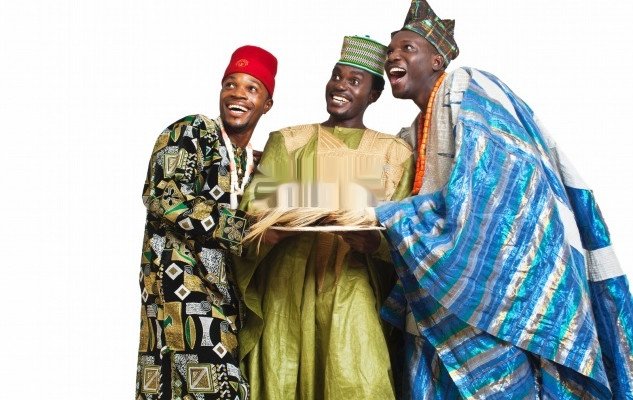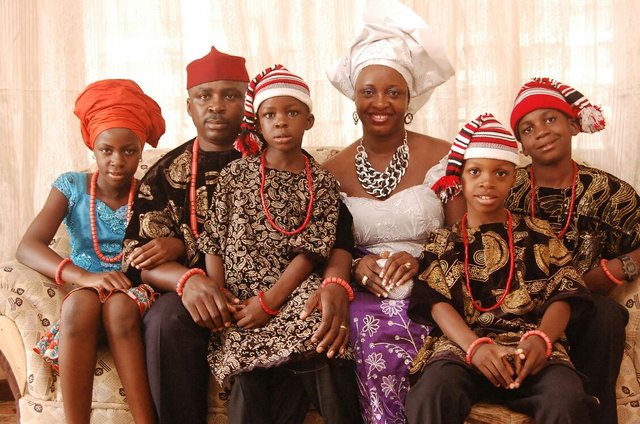Nigeria Traditional Attires
If you are an outsider (people that are not Nigerians) wondering about Nigeria fashion, this is the post for you.I know you are probably sitting there wondering about Nigerian fashion and why we dress the way we do or perhaps you are married to a Nigerian man/woman

Yourba
The Western-style dress is worn in urban areas. Traditional clothing is still worn on important occasions and in rural areas. It is very colorful and elaborate. Traditional fabrics were block printed with geometric designs. Women wear a head tie made of a rectangular piece of fabric. They carry babies or young children on their backs by trying another rectangular cloth around their the waists. A third cloth may be worn over the shoulder as a shawl over a loose-fitting, short-sleeved blouse. A larger cloth serves as a wrap-around skirt

Igbo
The Igbo traditional attire of the past generally consisted of little clothing, as the purpose of clothing originally was simply to conceal private parts, although elders were fully clothed, As colonialism became more influential, the Igbo adapted their dress customs. Clothing worn before colonialism became “traditional” and worn on cultural occasions. Modern Igbo traditional attire, for men, is generally made up of the Isiagu top. Isiagu (or Ishi agu) is usually patterned with lions’ heads embroidered over the clothing and can be a plain color. It is worn with trousers and can be worn with either a ceremonial title holders hat or with the conventional striped men’s hat known as Okpu Agwu. For women, a puffed sleeve blouse along with two wrappers and a head tie is worn.

Hausa
Hausa men are recognizable by their elaborate dress. Many wear large, flowing gowns (gare, babban gida) with elaborate embroidery around the neck. They also wear colorful embroidered caps (huluna). Hausa women wear a wrap-around robe made of colorful cloth with a matching blouse, head tie, and shawl.

It's always amazing to discover others traditions and cultures! Thank you for this amazing post!
Cheers
nice article ...God bless Nigeria
also upvote my post on African wears.
https://steemit.com/africa/@ebugreat/10-african-traditional-dresses-ladies-would-love-to-wear
Love this! Great content!
Nice... but i am not idea to comment your post @dammylohar
I always admired African attires. They are so unique and beautiful. Thank you for the first-hand explanation! ;)